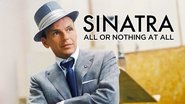Spoonixel
Amateur movie with Big budget
SteinMo
What a freaking movie. So many twists and turns. Absolutely intense from start to finish.
Glucedee
It's hard to see any effort in the film. There's no comedy to speak of, no real drama and, worst of all.
Deanna
There are moments in this movie where the great movie it could've been peek out... They're fleeting, here, but they're worth savoring, and they happen often enough to make it worth your while.
jc-osms
This series of four hourly programmes took us through the long and varied life of Francis Albert Sinatra, combining archive footage with contemporary voice-overs to give a full cradle-to-grave account of one of the twentieth century's greatest singers. I enjoyed the ride albeit with a number of major caveats.Undoubtedly the kid from Hoboken was a complex character, a loved and devoted father to his children, who was a man's man happy to lead the Rat Pack and also a serial womaniser (Sinatra's Greatest Misses, you could say), a conscientious, charitable fund-raiser who never lived down his connections to the mob, a challenger of racial segregation who told on-stage off-colour (no pun intended) jokes at the expense of his friend Sammy Davis Jr and a registered Democrat and supporter of John F Kennedy who later flipped and became friends with the later disgraced Richard Nixon and his Vice President Spiro Agnew. In and out of style and popularity, he ended up being a towering personality in the entertainment industry making some of the greatest records of his time as well as some, though not as many, terrific movies. The series takes a chronological look at the man's life and times, using as its reference point his first, of many, as it turned out, retirement concerts, filmed in 1971 when he clearly was still at the height of his powers, although the idea of interspersing the songs into the narrative to effectively tell his story lost its way somewhat. I could also have done without the endless eulogising of thankfully off-screen so-called experts making ever grander claims of him, far better to let the viewer judge by what they see than be egged on by their endless hyperbole.I would also have preferred a bit more focus on his hit and miss movie career, with no reference at all to his superb performances in, for example "The Man With The Golden Arm", the classic "The Manchurian Candidate" (which is only present in a clever-clever link to the JFK assassination), his hit musicals "Guys and Dolls", "Pal Joey" or "High Society" or even his series of superior hard-edged detective thrillers of the late 60's like "The Detective" and "Tony Rome" these latter made when his old buddy Dean Martin was half-heartedly and self-demeaningly camping it up in his Matt Helm films. In fact there's surprisingly little coverage at all of his relationships with Martin and the rest of his Rat Pack buddies at all, (Shirley MacLaine doesn't get a look-in) and you'd have thought the well-known clip of his role in bring Dean and Jerry Lewis together after years of estrangement might have been worthy of inclusion.Much is made of course of his relationships with his women, particularly Ava Gardner who gave him a taste of his own mistreating medicine and the youthful Mia Farrow who soon resisted his latter-day controlling tendencies while his poorly-treated first wife Nancy is a running presence in the story particularly through the references to his children. There's also no allusion at all to his daughter Nancy's pop success in the 60's or much time given to his last wife Barbara Marx or indeed his death, funeral and artistic legacy.I'm no Sinatra completist but I also noticed some major omissions in the songs which otherwise pepper the soundtrack, like "Three Coins In The Fountain", "All The Way", "My Kind Of Town" and his surprise mid-60's number 1's "Strangers In The Night" (which he hated) and his duet with Nancy "Something Stupid". In the end, I came to the conclusion that this man's life was too big for this show's allocated time, indeed it could have run to twice the length and been much more detailed, cohesive and interesting accordingly. Undoubtedly though, Frank Sinatra is a difficult man to pin down or categorise and I think in this series, the prey eludes his hunters. What is beyond doubt is the greatness of his singing as shown in several concert and TV clips although the funniest thing you'll ever see him in is his unintentionally hilarious team-up in powder-blue Austin Powers chiffon with the then hit group the 5th Dimension in a groovy late 60's TV clip.In conclusion then I found this a muddled, inconclusive life of Frank, very good in parts, weak in others, a bit like the man himself I suppose, but I believe in truth he deserved a better biographical tribute than this in the final summing-up.
l_rawjalaurence
SINATRA - ALL OR NOTHING AT ALL cannot be viewed as anything less than a highly comprehensive biography of the legendary actor/singer. Through four hour-long episodes, director Alex Gibney traces his life from his humble origins in Hoboken, New Jersey, to his radio and film stardom, his abrupt decline in the early Fifties, and his return to enduring stardom once he had signed for Capitol Records and started collaborating with the conductor Nelson Riddle.Although liberally illustrated with reminiscences from members of his family, coupled with archive recordings of "Ol' Blue Eyes" being interviewed on television on radio, and readings of printed autobiographies by Ava Gardner, there are no talking heads appearing on screen. Instead, director Gibney uses archive footage, photographs and specially-shot material, with the reminiscences in sound only. This gives the documentary a unique narrative fluidity that Gibney sustains throughout the lengthy running-time.The central conceit was a good one - using Sinatra's retirement concert in 1971 as a basis, where he sang a series of standards that chronicled his life up to then - Gibney traced the singer's life through the songs. Each one of them were heard once a particular period of his life had concluded. Hence we heard "My Way" right at he end when Sinatra had decided to "finally" retire, having ostensibly fulfilled everything he wanted. The fact that he made a comeback three years later was beside the point.Yet still we are left unsatisfied as to where the director's point of view actually lies. There are certain aspects of Sinatra's life that are either sketchily told or omitted altogether; we hear nothing of his nefarious antics in the early Sixties where JFK and Marilyn Monroe were concerned. Nor do we really discover much about his Mafia connections, except to learn that he enjoyed hob-nobbing with those in power. At one point the documentary refers to his ventures as an entrepreneur, as he founded his own airline (among other things), but that strand is subsequently ignored. We do not know how successful the singer was as a business person.Although the program justifiably makes much of Sinatra's god-given talent as a singer, he nonetheless comes across as a distinctly unsavory personality. He treated two of his four wives extremely badly - only Ava Gardner could really stand up to him; and he seems to have assumed that any woman he encountered would want to go to bed with him. An inveterate social climber, he spent much time and energy helping JFK win his presidential campaign of 1960; but when the Kennedys dropped him - on account of his connections with Mafia boss Sam Giancana - Sinatra transferred his loyalties to the Republican cause. In later life he came out as a supporter of Nixon and Reagan. He obviously did not like to be crossed; there were several instances of him replying to someone with a mouthful of abuse.The interviewees worked hard to foreground his qualities - his enduring commitment to the cause of anti-racism, his generosity with underprivileged children - but we still got the sense that he was not undertaking them out of altruism. So long as he obtained a good press as a result, then he was prepared to continue. Perhaps it's best sometimes that we do not know the intimate details of an icon's personality, as it tends to knock them down from the imaginative pedestal on which we place them.
fearthebowlink
This documentary was absolutely fabulous. Sinatra has always been my favorite, as his music is what I was raised on. I can openly admit though, that I only knew bits and pieces about his life before watching the documentary. I feel so informed after having watched hours about the man's life, and I greatly appreciate that the documentary included high points as well as low points. To know a person, you have to know all aspects of his/her personality, and I think that this documentary did a wonderful job of trying to cover so much material in only a few hours.I would definitely recommend watching this documentary if you want to learn a little bit more about Ol' Blue Eyes and the fantastic work that he accomplished in his lifetime!
Steve Pulaski
Part of the reason Frank Sinatra is an American icon, embedded in American pop culture, is because he was the pioneer for a lot of celebrity actions and activities we now see as commonplace or even conventional. For one, Sinatra was one of the first singers with an enormous fanbase, especially with young teen girls, who would croon over him like he'd croon over the microphone for one of his songs. In addition, Sinatra was a persistent social activist, a tabloid figure following his relationship with actress Ava Gardner, a singer turned movie star, a figure the public eye intensely watched and judged based on his private actions, and a mob-connected individual.All of these attributes alone are chronicled in the first two hours of Alex Gibney's four hour documentary Sinatra: All or Nothing at All, which airs over the course of Easter weekend on HBO. Gibney has effectively painted a grandiose film that, in two hours, meticulously details Sinatra's childhood and rise to fame, while painting the portrait of a man who's fame and wealth plummeted in one of the first cases of worldwide stardom in the United States.Sinatra was born and raised in Hoboken, New Jersey to a mother who acted as the neighborhood caregiver, taking in and helping raise children from all over the neighborhood. Sinatra began to enjoy the sound and culture of music, saving enough money to buy a microphone at a young age so he wouldn't have to project and embrace ridicule for using a megaphone, and went on to be a part of the "Hoboken Four," a group that would perform at variety shows before entertaining local nightclubs.Eventually, however, Sinatra broke from the Hoboken Four and embraced a solo career as a crooner, singing glacially paced tunes that showed that songs could be sung in a slow manner and still be viewed as effective ballads. In just over a year, Sinatra had become a hit with teen girls, who started fan clubs expressing support for the singer. He then gravitated to being a huge success amongst those of all ages. One music critic states that while films birthed celebrities, Depression-era America couldn't afford movie tickets and resorted to radio for free entertainment, which is how most became acquainted with Sinatra's sound and style. While resting comfortably on top of the world, Sinatra eventually began to falter due to heavy drinking and his relationship with movie star Ava Gardner, which was heavily documented right before the public eye. This is the beginning of what looks to be an immense downfall if it wasn't for managerial interference and Sinatra's determination to get back on track.Furthermore, following a sharp decline in popularity, Sinatra worked to reinvent his image for the public. The 1950's saw individual wealth grow astronomically, with teenagers finally being able to "afford their own subculture," as one social critic brilliantly puts it, and people gaining the expendable income to use for entertainment like movies and records. It was then that Sinatra saw a rebirth of interest and appeal that was never seen before; not only did Sinatra create the epitome of a global superstar, but he also showed one of the most incredible comebacks in showbiz history.Inevitably, Sinatra faced his downfall in the late 1960's, with slumping album sales, even his renowned concept works, and, by that time, singers would either get older and fade out or make a fool of themselves. Sinatra clearly didn't have his heart in his work anymore, and following a retirement concert in 1971 where he played eleven defining songs of his life and career, stepped off the stage and proceeded to move on, closing one of music's most fascinating and profound chapters.Sinatra: All or Nothing at All does a beautiful job at cleanly showing this history in a manner that's unambiguous and straight-forward. Gibney structures the film nicely, infusing Sinatra's personality into the film seamlessly and leaving the weight on him and numerous other primary accounts of his fame to tell his story. Even at four hours, cannot expand on every idea and notion Sinatra was about. Gibney never gets lost in the glamor, keeping things grounded in humanity and development and, in turn, undoubtedly creates one of the year's strongest documentaries.NOTE: This review is heavily edited; go to the Critic Reviews section and find my name to read the more elaborate and detailed one.







